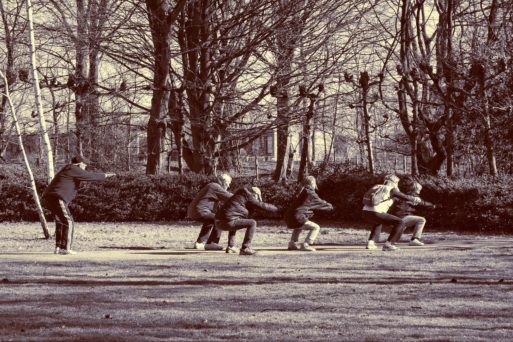We’ve always known that exercise is good for our minds and bodies — countless studies have shown that exercise can improve cognitive function and memory, act to decrease stress and anxiety, improve sleep and energy levels, and of course, work to keep your body healthy. And now, a new study published in the Journal of Applied Physiology has revealed that regular exercise offers even more significant long-term benefits for aging adults.

A new study shows regular exercise keeps your muscles young
The natural assumption for many years has been that as we age, our muscles and bones break down and we become more frail and vulnerable to illness and injury. However, it hadn’t been established whether or not that physical decline is 100 percent due to age, and if not, if it’s possible to change. Now, this encouraging study has shown that this assumed physical decline isn’t as inevitable as we once believed. In fact, it shows the opposite.
The Aging & Regular Exercise Study Details
What’s really exciting about this new study is its scope. Older studies that have shown similar results only focused on competitive athletes vs. sedentary people. This is one of the first studies to focus on “regular” people who exercise, (and it’s also one of the first studies to include women).
The researchers at Ball State University in Indiana compared people in their 70s who had been regularly active for the past 50 years against more sedentary peers of the same age, and against active, healthy people in their 20s.
The study examined the cardiovascular system and measured the capillaries and enzymes of the muscles, because these are the elements that were previously believed to decline as an individual aged. Prior the the study, they expected that the group of young people would have the largest aerobic capabilities and the strongest muscles, followed by the older lifelong exercisers, and finally, the older non-exercisers.

But what they found surprised them: Active men and women in their 70s who had regularly exercised showed muscles that were virtually indistinguishable from those of healthy persons in their 20s, showing just as many capillaries and enzymes. Further, while these active seniors had lower aerobic capacities than the younger people, their capacities were 40 percent higher than their peers, making them physiologically about 30 years younger than their actual ages.
What these findings show is that the assumed physical deterioration associated with aging isn’t inevitable and doesn’t have to be the norm.
Limitations of the Study
Because the study focused solely on exercise in participants’ lives, it didn’t take into consideration whether income, diet, genes or other lifestyle factors played a part. Further, the study neglected to include if exercise later in life could provide a similar benefit, but researchers plan to explore these topics in future studies, so stay tuned.
Regardless, these findings are exciting and strongly suggest that exercise can help to slow down and prevent physical frailty and degradation. We already knew that exercise offers a host of health advantages, and now we know of its long-lasting benefits that can follow us into old age. Check out our article on Active Aging to learn more about remaining active as we age.

 How Regular Exercise Can Slow Down The Aging Process
How Regular Exercise Can Slow Down The Aging Process



 How to Comfort A Dying Loved One
How to Comfort A Dying Loved One
 Our Annual Seven Holiday Gifts for Someone Who Is Grieving, 2024 Edition
Our Annual Seven Holiday Gifts for Someone Who Is Grieving, 2024 Edition














